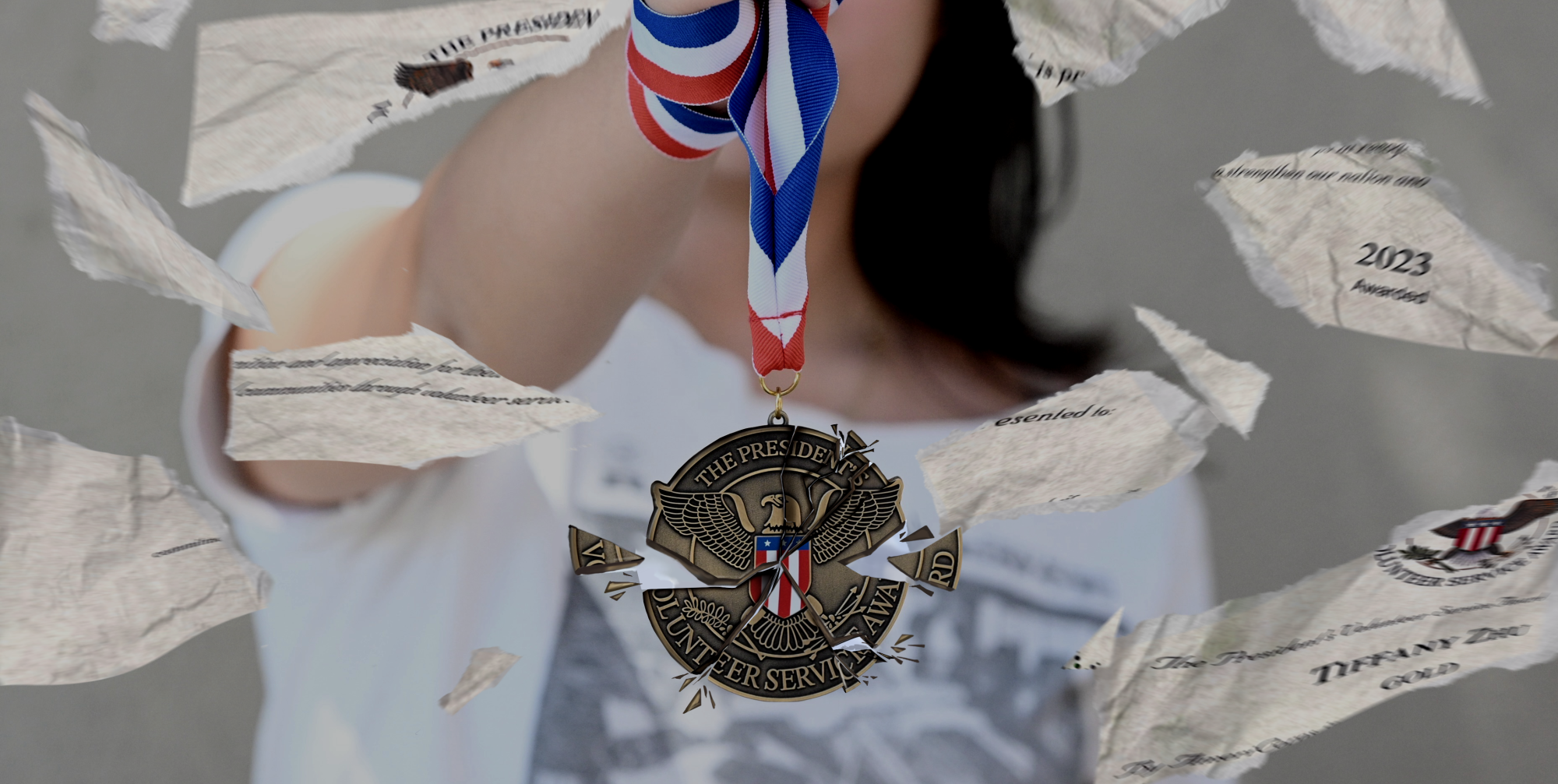Junior Demi Zheng eagerly clicked into the President’s Volunteer Service Award (PVSA) application, already imagining the gold medal and certificate she would receive in the mail after logging over 100 hours of community service over the past year. Then, she read: “This form is no longer accepting submissions.” Her heart sank.
On May 27, the federal agency Americorps declared a temporary pause on applications and orders for the PVSA award through a post on their website. PVSA-certified organizations were not notified prior to the public post, and the announcement provided no explanation for the hiatus. However, the pause coincided with Americorps facing nearly $400 million in budget cuts and significant staffing reductions.
“When I first found out that PVSA was removed, I was extremely enraged,” Demi said. “I thought, ‘Is this the government’s way of telling us volunteering isn’t important?’ Removing it may cause people to have less of an incentive to volunteer, and that’s really bad.”
Former President George W. Bush initiated the PVSA in 2003 with the goal of honoring individuals who displayed a consistent passion for volunteering. Award recipients must complete a certain number of hours according to their age group over the course of a year. They may receive PVSA Bronze, Silver or Gold medals depending on how many hours of community service they completed.
Junior Pascal Qin pointed out that without a tangible reward, students may lose the drive to devote their time to community service. As a result, nonprofit organizations would struggle to recruit new volunteers.
“Doing something that’s not for yourself is quite hard for a lot of people to wrap their heads around,” Pascal said. “PVSA was a good way to get a lot of people to feel that joy of giving back to your community. Now that those hours aren’t a thing anymore, it’s just not good for the community.”
In order to fulfill their graduation requirement, Harker students must complete at least 30 hours of community service — 10 each year from 9th to 11th grade. Director of Upper School Community Service and Student Activities Kerry Enzensperger is making plans to implement a community service award system at Harker to encourage students to continue community service outside of school requirements.
“We could have different levels and copy PVSA, but it would be Harker’s name,” Enzensperger said. “Our school would do this award system because PVSA is on hold, but we still want to recognize our students for their outstanding service to the community.”
Senior Tanvi Sivakumar earned PVSA Gold four years in a row, completing 100 or more service hours annually from 2022 to 2025. She viewed volunteering not as a path to recognition but as an outlet for her passion.
“It was nice getting that acknowledgement, but at the same time, it was never an expectation for me,” Tanvi said. “I had already been volunteering for years before I even knew the hours counted.”
However, schools and organizations can only do so much to encourage students to volunteer. Pascal believes that in the end, individuals must find meaning in their own work and pursue service for reasons that go beyond recognition.
“Volunteering certainly isn’t for everyone, and not everyone’s going to love it, but everyone should give volunteering a try,” Pascal said. “When you give back to your community and you see how happy you can make other people, a lot of people will realize that volunteering isn’t just something you do for medals. It’s a very healthy and self-fulfilling process.”
While the pause on PVSA may discourage some students from engaging in service, it can also encourage them to explore unconventional opportunities. Enzensperger noted that meaningful volunteering does not have to follow a standard path and fit common expectations.
“If you can find something you truly enjoy doing, even if it’s very obscure, it doesn’t feel like volunteering,” Enzensperger said. “The hours don’t matter because you’re enjoying your time doing it.”


